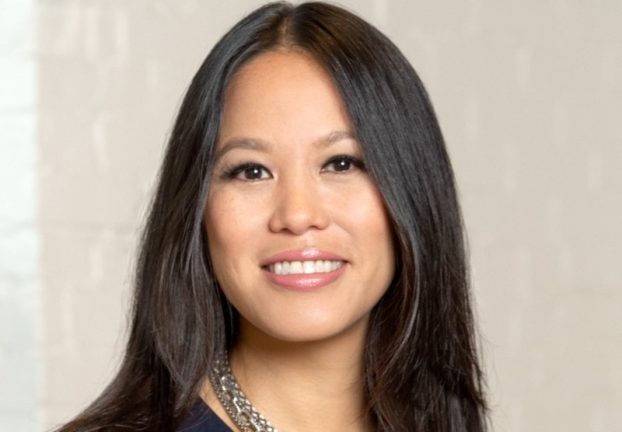Also in this report:
– Advertisers slow to catch on: Population changing, yet few see ethnic marketing as long-term strategy p.26
– Demand increasing for ethnic creative talent p.28
– Establishing links to China: Market has potential if you understand culture p.28
– Cultural nuances a factor in Chinese research: Sometimes yes means no, medium means high p.29
– Directory serves Jewish community: Target is affluent, well-educated p.30
Donald Trump called his autobiography The Art of the Deal.
But perhaps that title should have been reserved to describe the buying and selling of Chinese media in Canada.
It would be singularly apt, what with the prevalence of direct dealing, rebated commissions and small shops playing on credit, not to mention the dearth of established rates.
Aida Liang, director of Asian marketing with Bryant, Fulton & Shee in Vancouver, says that in any growing media market the situation is likely to be unsettled.
Until the Chinese market matures, she predicts, client-agency loyalty will be a rare commodity, as advertisers shop around to compare price and quality.
Anthony Chow, president of Vancouver’s Colorama Productions and, like Liang, one of the founders of the Vancouver Chinese Advertising Marketing and Media Association (vcamma), says there are two reasons why the Chinese media market is in its present state.
The first is historical. In the old days there simply weren’t any agencies around to handle Chinese media, so the practice hasn’t taken hold the way it has in the English or French markets.
The second, says Chow, is a direct consequence of the first: because they’re not used to dealing with agencies, some Chinese advertisers, particularly in the retail sector, see agencies as fee-charging ‘intruders’ to be avoided.
Still, Chow believes that the Chinese market is starting to mature and that eventually there will be ‘conformity for all.’
Cleve Lu, president and creative director of Era Advertising in Markham, Ont., says a set of standard rates in the Chinese media business would be ‘more than welcome.’
At the moment, he says, people are doing their own thing: media want to deal directly with clients, some small agencies don’t pay their bills and others rebate part of their commissions to clients.
He is quick to point out, however, that problems in buying and selling media aren’t the exclusive domain of the Chinese.
Justin Poy, president and creative director of Justin Poy Media in Toronto, says that professionals in the Chinese media business have begun talking about establishing standard rates – but until there’s more research on Chinese media habits it will remain just talk.
(DJC Research, an ACNielsen company, will be conducting a single-source media and product usage survey this fall among Toronto’s estimated 325,000 Chinese residents.)
The whole idea of agency commissions has proved difficult to enforce in Chinese media, Poy says. He is also concerned about demands on the part of some clients for commission rebates, and about the quality of print circulation auditing.
Peter Li, general manager of the Ming Pao Daily News’ eastern edition, says that about 60% of his newspaper’s ad revenues come through direct dealing with clients, rather than through dealing with agencies.
A major reason, says Li, is that there are still only a few agencies in the Chinese market that have all the basic ingredients a firm needs to work with clients and media.
Ming Pao, he adds, stresses ‘rate integrity,’ which means that direct clients and agencies get the same price.
Joseph Chan, director and chief operating officer of Fairchild Television, says his company deals directly with a number of clients, but doesn’t see any particular advantage to this approach.
A lot of his direct clients, he says, don’t have any experience with an agency simply because they don’t know how to use one.
Chan says Fairchild, which has operations in Toronto and Vancouver and repeaters in Edmonton and Calgary, prefers dealing with agencies, but is leery about some of the smaller shops in Vancouver – particularly when it comes to credit-worthiness.
Despite the wheeler-dealer atmosphere that prevails in Vancouver – something not restricted to Chinese media, as the Wild West image of the Vancouver Stock Exchange suggests – Chan says the West Coast media buying scene as a whole is beginning to mature, and the Chinese market will follow suit.
The Toronto market, he adds, is somewhat farther along.
John Leung, president of Toronto-based Prime Advertising and former president of the Chinese Canadian Advertising Marketing and Media Association (ccamma), says corporate clients usually won’t bypass agencies – but retail advertisers will if they think they can get a better price on their buy.
Leung, who supports standard media rates, concedes that there’s some education still to be done.
Much depends on the media. They must learn the importance of agencies, says Leung, who intends to bring this issue before the board of the ccamma.
In Vancouver, Chow and Liang are working to bring some coherence to the west coast’s Chinese media market.
Liang says that while the vcamma can only suggest that its members abide by the rules, it is working to ensure that media and clients are at least aware of them.
Over time, as the market evolves, those who play fast and loose with accepted practice will be weeded out, she predicts.
Chow says the industry needs an open forum to discuss the whys and wherefores of regulation, adding that eventually there will have to be rules.
He wonders, however, whether agencies will come around readily to the idea, given that many are busy just trying to survive.























